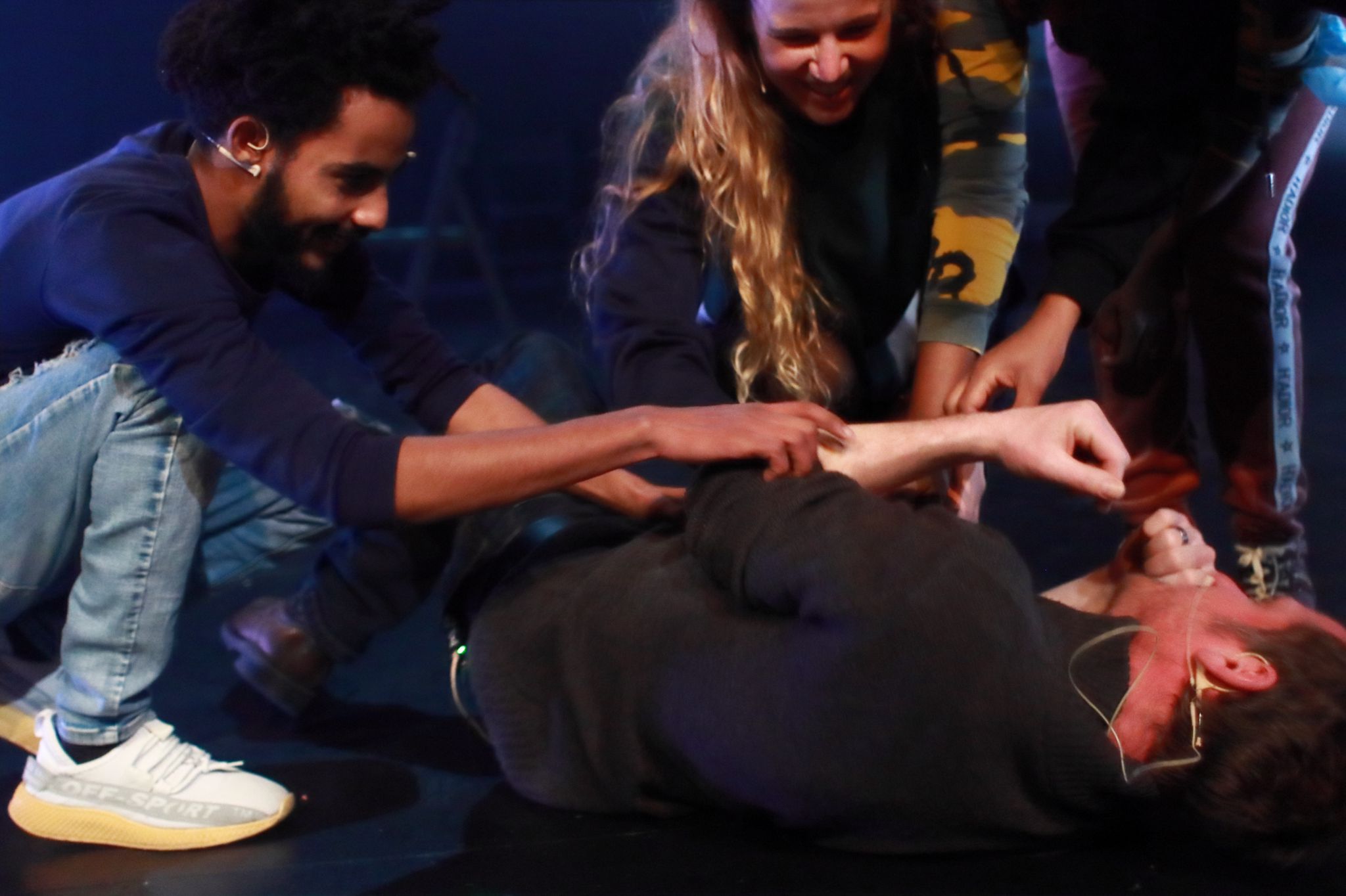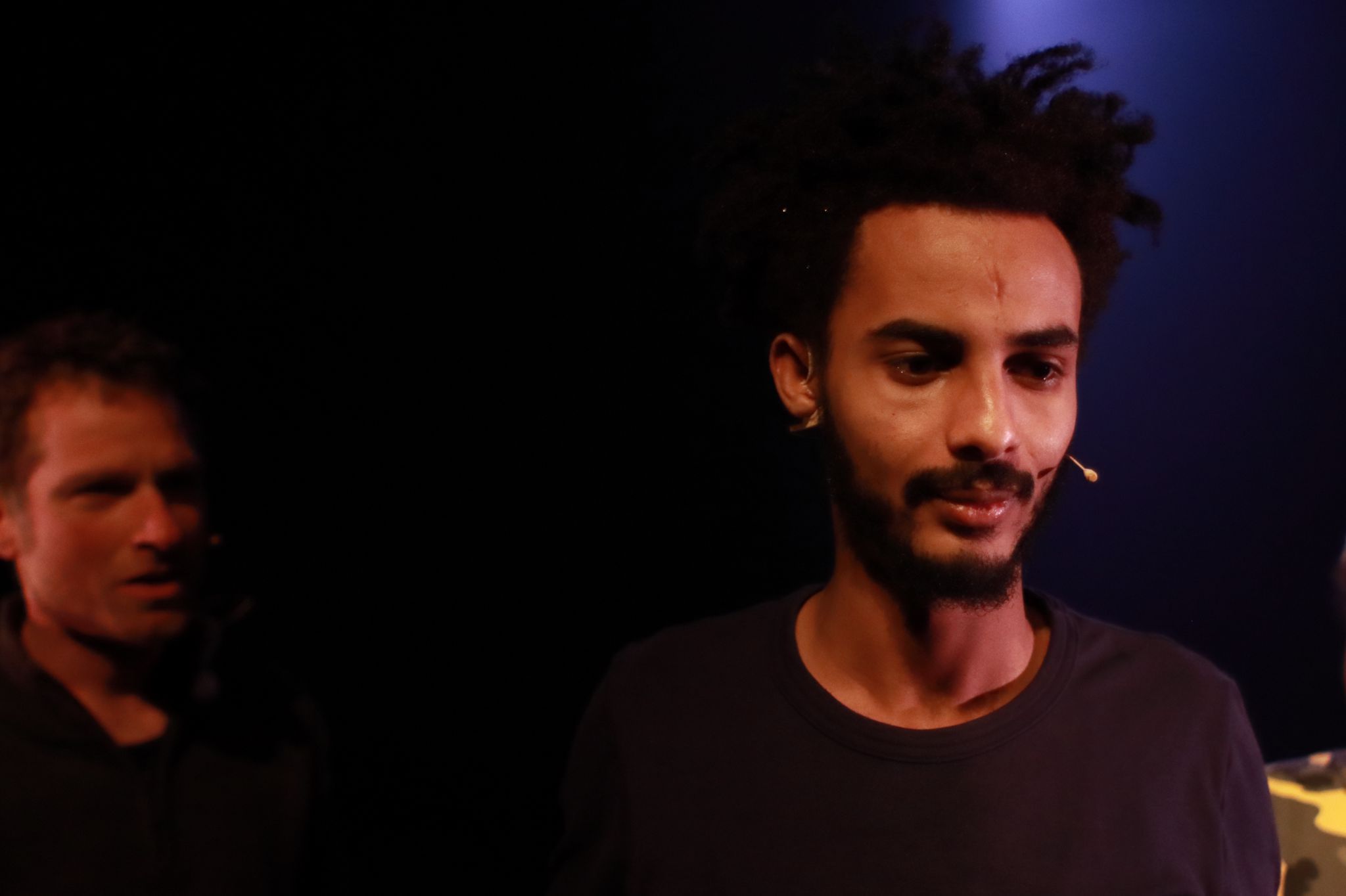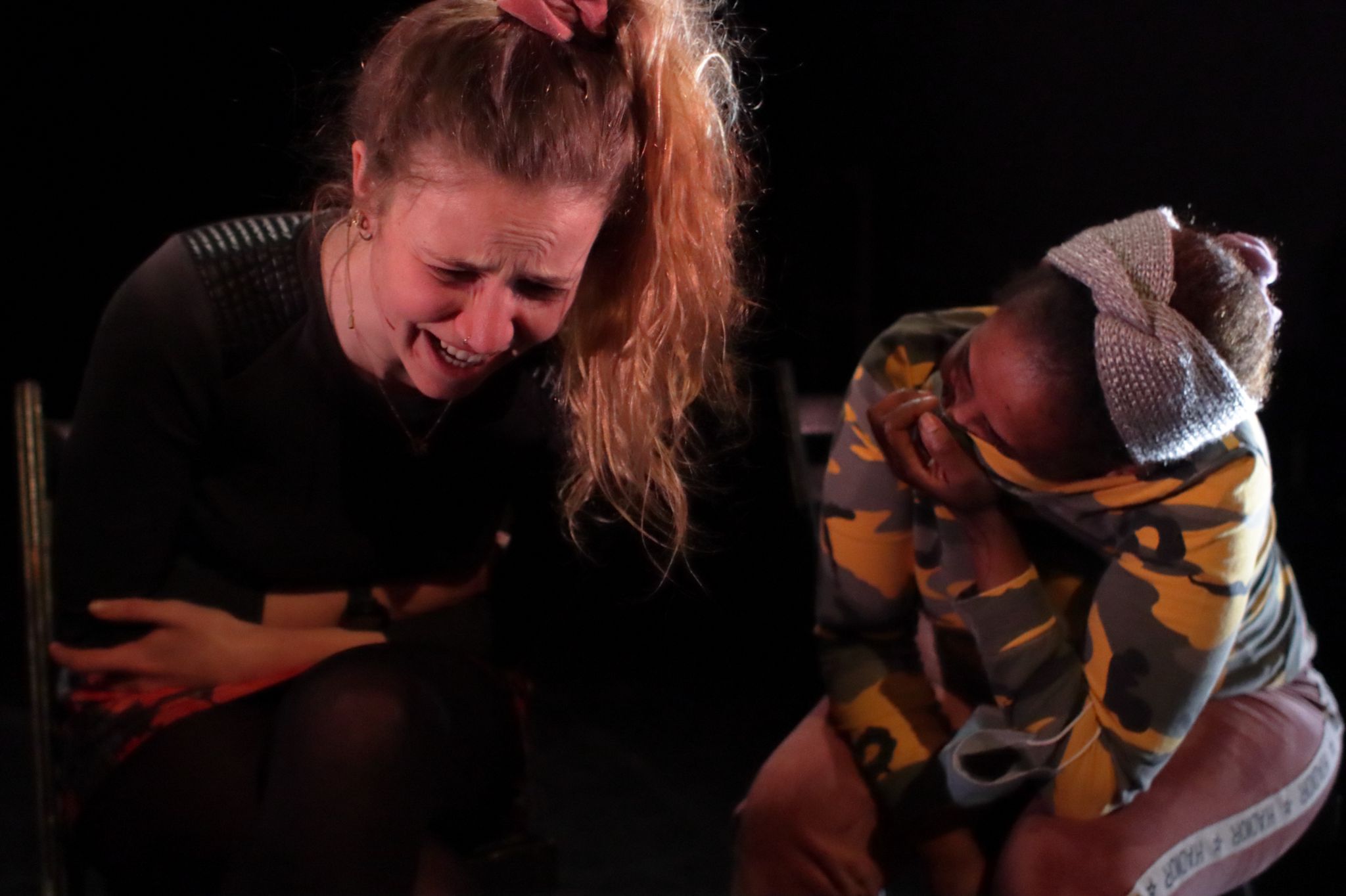Theatre Workshop I
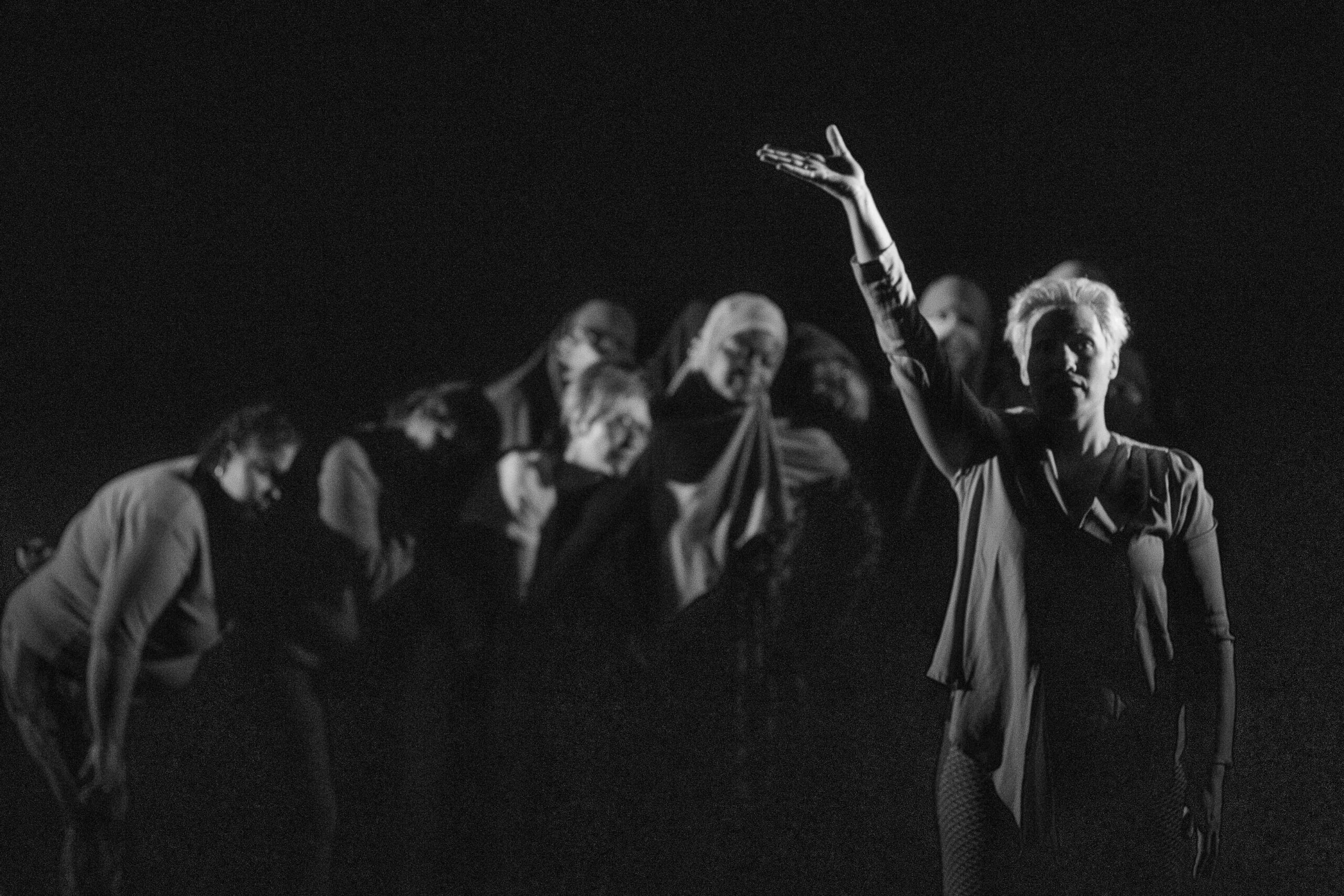
In this performance, a group of 15 newcomers who speak a foreign language – who are also students at Ligo – get together with theatre makers Stefan Perceval and Marit Stocker to work on their stories and dreams.
Who are they, what is in their hearts, what are their dreams?
Stefan and Marit guided this group to the performance, but the active makers were the participants themselves. This performance was made and is played by them.
The photography works of other students were exhibited in the hall. As part of the same project, they worked with Juan Monte in the DeRuimte art studio on photography and the visual arts.
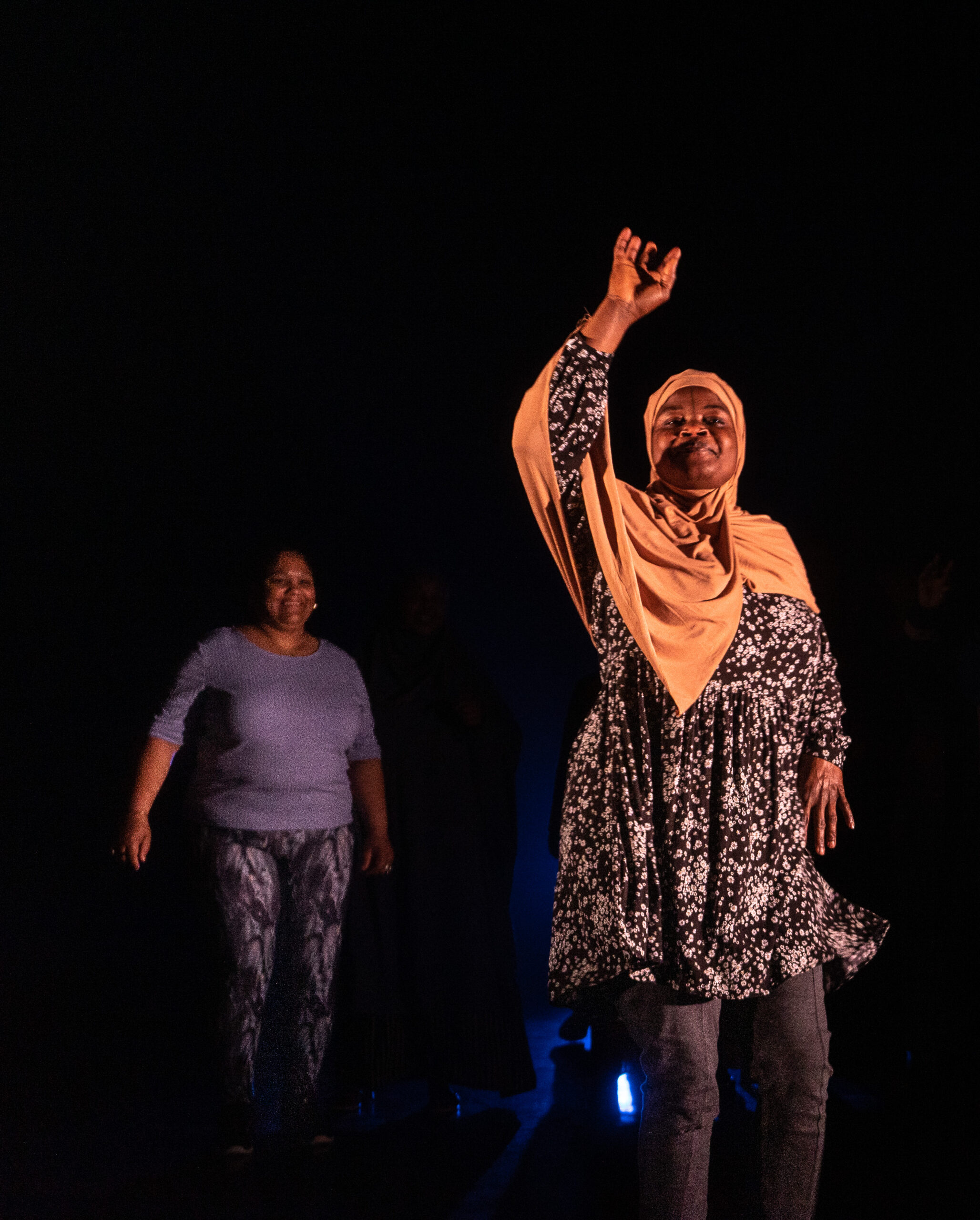
Participants
Methodology
We are searching for a way to bridge the lessons that students enroll in at Ligo (provider of basic education), and the learning activities that Het Gevolg offer (theatre company).
How we pursued this for this production, is by following these steps:
INFORMATION
– teachers at Ligo get informed about the possibility for their students to enroll in theatre workshops
– teachers inform their students of the opportunity to participate in theatre workshops
REFERRAL
– students who are interested, take part in the sessions of the theatre workshop, a teacher from Ligo is present to evaluate how theatre is strengthening the learning outcomes for these students
PROCESS : COCREATION
– students get to know each other and learn new skills while practicing Dutch
– following each rehearsal, teachers from the theatre workshop and from the basic education organisation have a one on one conversation where insights and feedback are being exchanged and learning outcomes and the process are being discussed
RESULT
– students and teachers work together to create the script, the attributes, the play
– students and teachers work together in order to perform on stage for a life audience on a set day and hour
– students ellaborate on promoting the event
PROCESS EVALUATION
– following the result that students and teachers co-created, we conduct a multi-factor process evaluation in the form of a fishbowl conversation where students, art teachers and basic education teachers express: (1) expectations prior to participation, (2) appreciation of self-efficacy during the process of rehearsing together, (3) learning outcomes, (4) dissemination of learned skills or learning method into daily practice
Lessons learned
- open communication between teachers of the theatre workshop and teachers of the basic education organisation is essential
- the dynamics in the group of students determines the group’s motivation
- the various roles within the group of students become clear from the first rehearsal session; a student who joins or leaves the group has an impact on the group as a whole
- clarity about when exactly the performance will take place is preferable to a lengthy process of deciding on this date – the students feel the need to be able to work towards a specific point in time
- taking pictures during the rehearsal or the performance is a threshold that affects the safer and braver space
- the learning process is most effective in small groups: if the group is larger than 15 people, the learning results will decrease
- it is burdensome for the teachers to check that the pupils are present at the rehearsals; an effective way of communication must be found that does not burden the teachers
- the information and results of this theatre workshop are not very accessible to other teachers and students; in order to reach more students in the future, we need to develop tangible results that can inform teachers and students about the process and learning outcomes
